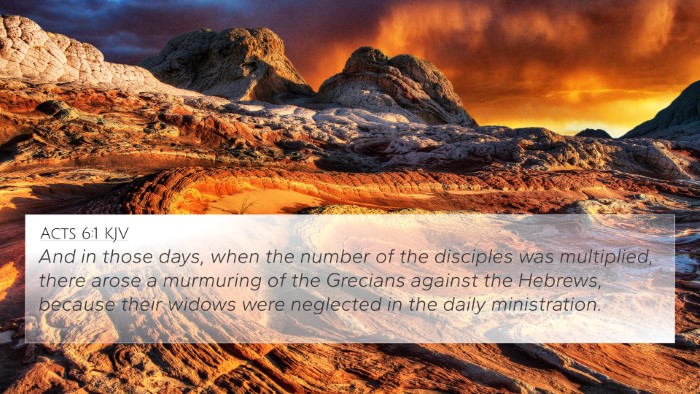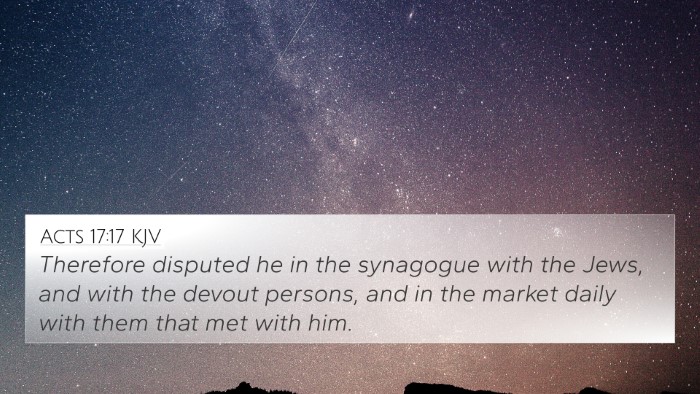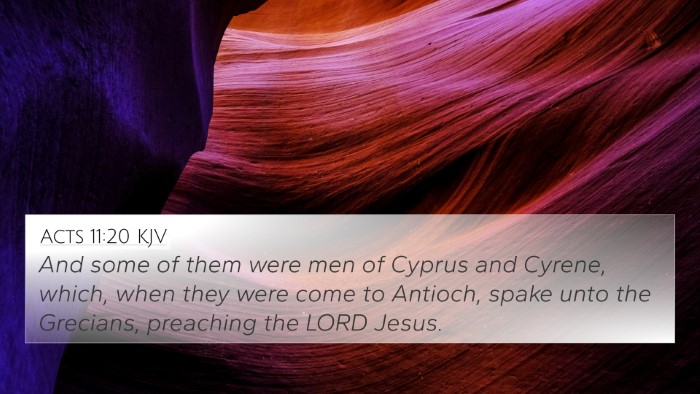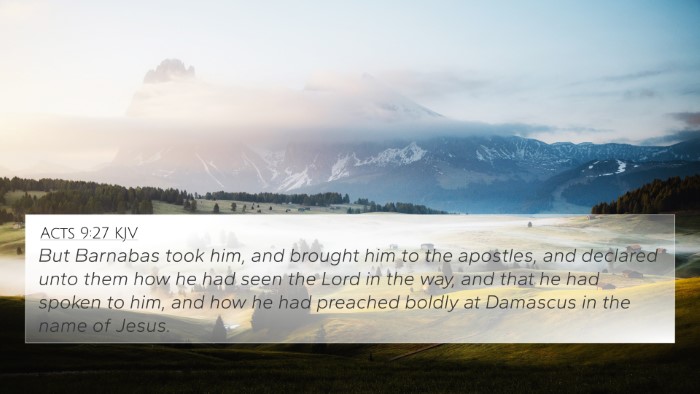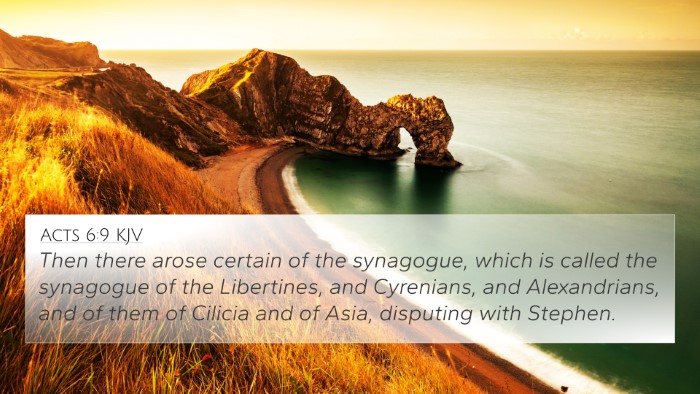Acts 9:29 - Meaning and Interpretation
Acts 9:29 states: "And he spake boldly in the name of the Lord Jesus, and disputed against the Grecians: but they went about to slay him."
This verse highlights the boldness of the Apostle Paul as he proclaimed the name of Jesus amidst opposition. It also indicates the growing animosity against him by the Grecians, showcasing the challenges early Christians faced.
Key Themes
- Boldness in Faith: Paul's courage to speak about Jesus despite the danger.
- Conflict with Unbelievers: The resistance faced by early Christians, particularly from those who opposed the message of the Gospel.
- The Role of Disputation: Engaging in dialogue to defend the faith effectively.
Commentary Insights
-
Matthew Henry:
Henry emphasizes the necessity of boldness in proclaiming the Gospel. He notes how Paul, once a persecutor, became a powerful advocate for Christ, demonstrating transformation through divine intervention.
-
Albert Barnes:
Barnes remarks on the danger Paul faced in Jerusalem, suggesting that his courage was remarkable given his former life as a persecutor. He illustrates how Saul argued strongly against the Grecians, indicating an intellectual and doctrinal confrontation.
-
Adam Clarke:
Clarke elucidates the term "Grecians," referring to those who spoke Greek and were likely Hellenistic Jews. He describes this as indicating opposition from the cultural context Paul found himself in, stressing the significance of understanding local dynamics in ministry.
Bible Verse Cross-References
- Matthew 10:16: "Behold, I send you forth as sheep in the midst of wolves: be ye therefore wise as serpents, and harmless as doves."
- 2 Timothy 1:7: "For God has not given us a spirit of fear, but of power and of love and of a sound mind."
- Acts 13:46: "Then Paul and Barnabas waxed bold, and said, It was necessary that the word of God should first have been spoken to you: but seeing ye put it from you, and judge yourselves unworthy of everlasting life, lo, we turn to the Gentiles."
- Philippians 1:14: "And many of the brethren in the Lord, waxing confident by my bonds, are much more bold to speak the word without fear."
- Acts 18:9-10: "Then spake the Lord to Paul in the night by a vision, Be not afraid, but speak, and hold not thy peace: For I am with thee, and no man shall set on thee to hurt thee: for I have much people in this city."
- Acts 4:29: "And now, Lord, behold their threatenings: and grant unto thy servants, that with all boldness they may speak thy word."
- 1 Peter 3:17: "For it is better, if the will of God be so, that ye suffer for well doing than for evil doing."
Connections and Cross-Referencing Biblical Texts
Understanding Acts 9:29 requires viewing it through the lens of inter-Biblical dialogue. It parallels with various verses demonstrating the trials faced by believers and their commitment to advocacy for Christ.
For instance, the call to boldness in Matthew 10:16 aligns with the contention Paul faced, highlighting that such struggles were anticipated in the Christian journey.
Similarly, references in Philippians 1:14 show that Paul's imprisonment inspired others, which reflects the wider impact of his witness despite adversities.
When considering these thematic Bible verse connections, we see a recurring motif of how fearlessness in the face of opposition strengthens the resolve of the faith community.
Thematic Bible Verse Connections
Acts 9:29 also establishes a pivotal moment in the narrative of Paul's ministry. It invites a comparative analysis of the broader themes in the Pauline epistles wherein he often speaks of conflict and resolution concerning Gospel proclamation.
Furthermore, examining the links between the Prophets and Apostolic teachings reveals how boldness has always been a characteristic of God's messengers, from the days of the Old Testament to the New Testament.
Cross-Referenced Themes in the Bible
Each cross-reference listed not only reinforces the essence of Acts 9:29 but also underlines the dynamic interplay between the Old and New Testament themes of perseverance, advocacy, and divine assurance in the midst of challenges.
This form of comparative Bible verse analysis enhances understanding, providing tools for Bible cross-referencing that can illuminate the Scriptures for believers seeking deeper insight.
By exploring these connections, one can appreciate how the early church, exemplified by Paul, contributed to a rich tapestry of faith that endures through generations.
Conclusion
Acts 9:29 stands as a testament to the trials faced by early Christians and the boldness required to proclaim their faith. It profoundly contributes to our understanding of scriptural boldness, connection among verses, and the historical context of Paul's ministry.
For those engaged in cross-reference Bible study, exploring such themes is invaluable for comprehending the deeper narrative of the Gospel and its relevance in contemporary faith journeys.



